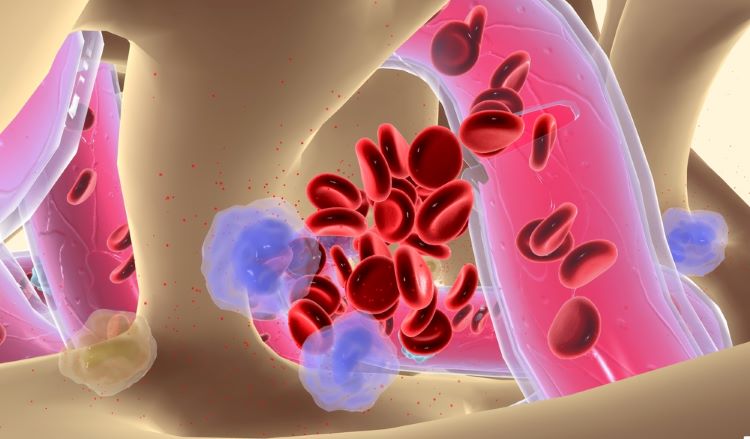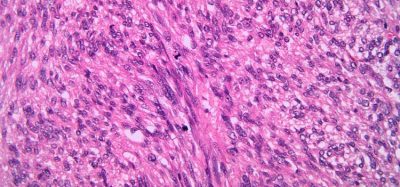Multiple myeloma bispecific antibody granted accelerated approval
Posted: 10 August 2023 | Catherine Eckford (European Pharmaceutical Review) | No comments yet
Accelerated US approval of a first-in-class bispecific antibody (BsAb) therapy offers a new option for a difficult-to-treat blood cancer.


The US Food and Drug Administration (FDA) has granted accelerated approval of TALVEY™ (talquetamab-tgvs) to treat multiple myeloma.
Janssen Pharmaceutical Companies of Johnson & Johnson’s first-in-class bispecific T-cell engaging antibody showed an overall response rate (ORR) of over 70 percent in heavily pre-treated multiple myeloma.
Based on this data, TALVEY is indicated for adults with relapsed or refractory multiple myeloma who have received at least four prior lines of therapy, including a proteasome inhibitor, an immunomodulatory agent, and an anti-CD38 antibody. It is suitable as a weekly or biweekly subcutaneous (SC) injection after an initial step-up phase.
“Talquetamab as a first-in-class therapy is a new option for patients with this difficult-to-treat blood cancer,” stated Dr Ajai Chari, Director of Multiple Myeloma Program, Professor of Clinical Medicine at the University of California, US.
Dr Peter Lebowitz, PhD, Global Therapeutic Area Head of Oncology at Janssen Research & Development LLC, acknowledged that the accelerated approval of TALVEY is the company’s “fifth innovative therapy and second bispecific antibody approved for the treatment of multiple myeloma”.
Multiple myeloma MonumenTAL-1 study
In the dose-escalation MonumenTAL-1 study, which incorporated Phase I and Phase II, over 300 patients were enrolled.
A median duration of follow-up of 10.4 months showed that 72 percent of patients achieved an ORR, and an estimated 59 percent of responders maintained response for at least nine months.
This study also included 32 patients who were exposed to prior bispecific antibody or CAR-T cell therapy (94 percent B-cell maturation antigen [BCMA]-directed therapy) and had received at least four prior lines of therapy. These included a proteasome inhibitor, an immunomodulatory agent, and an anti-CD38 monoclonal antibody. These participants received TALVEY at the 0.4mg/kg SC weekly dose.
Mechanism of action for talquetamab
The anti-cancer treatment binds to the CD3 receptor on the surface of T cells and G protein-coupled receptor class C group 5 member D (GPRC5D) expressed on the surface of multiple myeloma cells, non-malignant plasma cells and healthy tissue such as epithelial cells in keratinised tissues of the skin and tongue.
Under accelerated approval, TALVEY at present, only available through a restricted programme in the US called the TECVAYLI® and TALVEY™ Risk Evaluation and Mitigation Strategy (REMS).
Related topics
Anti-Cancer Therapeutics, Big Pharma, Biologics, Biopharmaceuticals, Clinical Development, Clinical Trials, Data Analysis, Drug Development, Drug Safety, Regulation & Legislation, Research & Development (R&D), Therapeutics
Related organisations
The Janssen Pharmaceutical Companies of Johnson & Johnson, US Food and Drug Administration (FDA)









